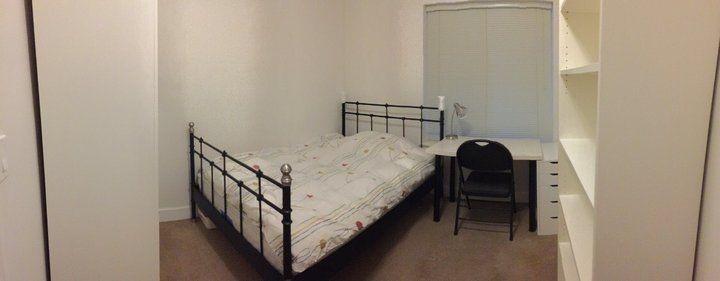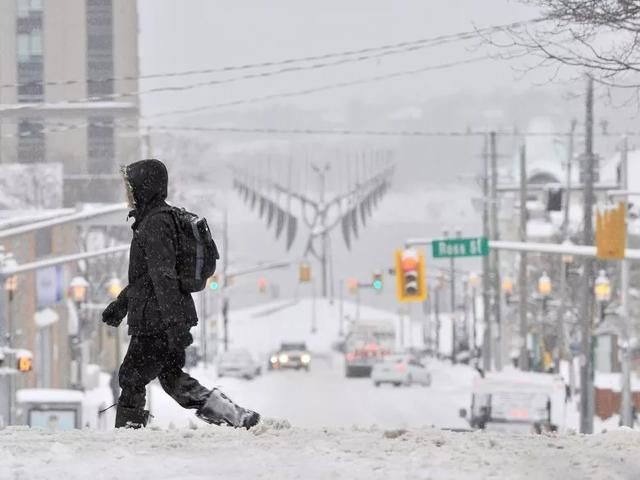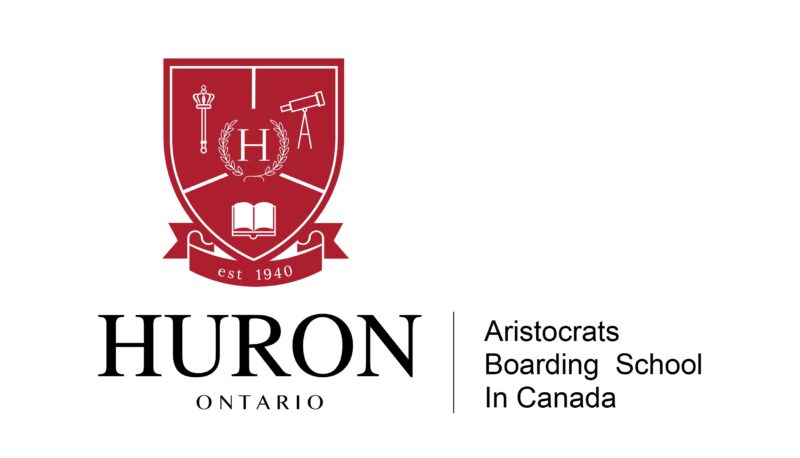Many parents believe that “good context is the key to learning other languages.” As a result, homestays have become a priority for parents who send their children to study abroad. Being able to eat, live, and work using your English-speaking skills will help you improve your English. Yet is that the case? Today, let’s compare boarding schools and homestays.
A boarding school is a school where some or all students not only study at the school but also live with their peers. The school’s teachers ensure that students are well-fed, supplying housing and safety, and also monitor their learning.
Homestay is the provision of housing and basic food for foreign students in their country of study in the form of paid services. In simple terms, it means paying local residents to take care of food and housing for international students.
It is only from the explanation that we find that the homestays provide only food and shelter, while the boarding schools take care of every aspect of the students’ lives. Let’s compare boarding schools and homestays together.
PK 1. Safety factor
Parents are most concerned about their children’s safety when they are studying abroad alone; does their child go out alone? Who should I call when my child is sick? Is there anyone supervising the children to keep them safe?
Recently, the coronavirus is spreading globally, and there is an uneasy feeling among New Zealand’s residents. With the start of the school season, some international students from Asia find out their homestay refuses to provide them with accommodation, citing a physical assessment of the students as a reason for them to find accommodation for two weeks of isolation.
Many high school students have never been in this situation before, and after being rejected by homestay, they are at a loss as to who to turn to for help to rent an apartment or stay at a friend’s house.

However, this is not only the case in New Zealand; many homestays in many countries are afraid to host Asian students and rejected students who already booked the house.
This phenomenon reflects the fact that homestay treats international students as a means of earning money and shirks its responsibility as soon as problems arise, regardless of the safety and livelihood of the students, and even expels them from their homes.
Boarding schools have accommodation so that children do not have to travel far. There is a curfew on the campus and residential teachers to ensure the safety of students. If a child is sick, the school will have a teacher take the child to the hospital.
The child is living in a homestay, and the parents rightfully assume that the landlord of the home will keep the child safe, but this is not the case. Parents of homestay have no supervisory role over their children. If a child comes home late, the homestay landlord does not ask anything; if the child is sick, he or she has to buy his or her own medicine.

PK 2. Learning supervision
Aside from safety, parents are most concerned about their children’s learning. Most high school students who study abroad are young and do not have strong self-discipline, which requires teachers to monitor their children’s learning and ensure the quality of their studies.
The group life of the boarding school is regular, and the children’s sense of self-discipline is enhanced. The teacher will always keep an eye on the students’ learning and communicate with them. Many boarding schools have a system of evening self-study, where the teacher sits in the class to inspect, creating a strong learning atmosphere for the child, and the child can always ask the teacher questions. Teachers in boarding schools also establish contact with parents to give them updates on the learning and life of their students.

Homestay families do not supervise their children’s studies. The child’s grades are not part of their service, and homestay landlords feel they have no obligation to monitor their child’s learning. Most parents of homestay families do not have a high level of education and cannot help their children with their questions. After class, many students play games all night and are unmotivated to study. Homestay families are not responsible for their management, nor are they obliged to report on the children’s lives to the parents in the country. Parents are blinded by their children’s false debriefings and wait until the end of the school year for their reports to realize it is too late.
PK 3. English language improvement
Having said that about learning supervision, let’s look at another issue of great concern to parents, the improvement of their child’s English. As mentioned above, many parents believe their children in homestay families will improve their English language skills. But that is often not the case. Parents should be aware that homestays are set up to earn money, and that landlords do not provide more than necessary services to their children, so “free tutoring” is wishful thinking on the part of the parents. And many homestay landlords have other jobs and don’t have time to gossip with students.
Liu, who lives in a homestay, said in an online message that the homestay landlord he was living with was a husband and wife in their 50s, who immigrated to Canada from Iran, and spoke Farsi. When they spoke to Liu, they would use English with a heavy accent. Sometimes, when Liu needed to understand them, he wrote it down. As a high school student, Liu was here to learn English, but he also had to correct the pronunciation of his landlord.
In fact, many homestay landlords are immigrants from Asia, Africa, and Latin America, and their English is not good, not even as good as some international students, and not good enough to help students practice their English. And many homestay family landlords have other jobs and don’t have time to talk with students.
In boarding schools, teachers use English to communicate with students during classes and activities, creating an English-speaking environment that allows students to learn English in an immersive way and improve their English in daily conversation. The school also offers ESL courses with professional bilingual teachers who systematically explain and answer students’ questions. With daily practice and systematic explanations, students’ English skills will improve quickly.
PK 4. Life management
Many international students are young, unfamiliar with the foreign environment, and have a lot of questions, but they don’t know who to ask, and the answers given by students who also know little are incomplete. When confusion spreads, it is easy for international students to become lonely and have psychological problems. This is when the advantages of a boarding school with more activities, peers, and teacher supervision helps.
The boarding school’s teachers are always ready to answer any questions students may have, helping them to integrate into the foreign lifestyle and learning environment as quickly as possible. For international students, living with their classmates daily can reduce feelings of loneliness. They can inspire each other and communicate with each other, which has many benefits for the child’s personality, enhanced mental tolerance, etc.
These are things that homestay families cannot give to your children. Most landlords in residential homes are employed and have no means or obligation to help students adjust to their new environment. The student may share a room with another child, but not necessarily the same school, the same age group, and the two have no topic to talk about, the child can only play with their phones and computers in their room.
PK 5. Housing conditions
The boarding school is well accommodated, with good infrastructure, indoor heating/cooling, laundry, drying, internet access, etc. The housing is clean and tidy. A child’s ability to live independently is also exercised as he or she takes care of himself or herself. At the same time, the school often organizes civilized dormitories, safe dormitories, and other competitions to develop children’s ability to work together and a sense of team honor.

Many homestay families provide photos of houses with low credibility. Several international students have made statements online that they have been “scammed” by students. The house in the pictures was big, new, and clean looking, and when they arrived, the house was small, old, and unsanitary. Not only that, but many homestays turn down the heating in winter to save money.
Not only that, but many limit the time for bathing to save money on water and electricity, and the water and electricity are cut off if students use it for too long. A student left a message online saying that when he lived in a homestay, he ran out of water when he was taking a shower and was still covered in suds and was even later lectured by his landlord. Things like this are not an exception.
When Zhang first moved into a host family, she felt comfortable, but gradually her landlord’s nature of earning money was revealed. In the winter, the landlord only turned the heat to 18°. Zhang felt the cold and tried to communicate with the landlord to turn the temperature up, but the landlord refused. Canadian winters are long and cold, the houses are wood, the insulation is poor, and it’s cold if the rooms don’t have enough heat. But Zhang didn’t know how to protect his rights and interests and had no way to find a new house.

Homestays are open not only to international students but also to pregnant women. Most homestays share common areas such as toilets, showers, etc., which can be inconvenient for students.
PK 6. Healthy diet
For international students, the hardest thing to change is their diets. The Western dining culture is burgers, fries, sandwiches, pizza, etc. Some international students may like to eat these foods when they first arrive, but eating three meals a day, the children not only physically can’t stand the large amount of fried food, but it can also generate a lot of negative emotions, including missing their hometown dishes. The canteens of boarding schools offer a balanced diet to suit the tastes of students from all over the world so that students can have a taste of home even when they are abroad. Nutritional intake is also ensured to prepare students for learning and activities.
Homestay families, however, do not have as many options; they are primarily concerned with earning money and do not guarantee nutrition for their students.
Apart from sandwiches, pizzas, instant noodles, etc. every day, the food portions given to international students by foreign families are small, and many international students don’t eat enough. In an online interview, Lee mentioned that she had stayed with a homestay family, and her landlord didn’t prepare dinner because she was busy at work.
She was hungry, so she went to the fridge to get the meal the landlord had left for her, a bag of instant noodles and a little bit of rice. She microwaved them and ate them. Unexpectedly, the landlord came home and lashed out at her, saying that was for three meals. Lee was speechless, saying that such a little meal was not enough for three meals, let alone one. But she had recently left her country and didn’t know how to defend her rights, so she held her tongue and moved out soon after.
As is the case with many homestays, the nutrition and quantity of the student’s food fall short of what the student needs to grow. This is difficult for international students, and many children choose to eat out, adding to the cost of additional expenses.
PK 7. Transportation
The boarding school’s academic and dormitory buildings are so close that students can walk between them. There are also many activity programs set up on campus so that students can participate in a lot of activities by being on campus, fully ensuring the amount of activity and safety of the students. At the same time, students participate in activities with their classmates who spend time together, which can enhance the bonding between students and improve their teamwork skills.
Homestay families only provide “food and accommodation” services and do not include “transportation”. Student commuting needs to be handled on its own. Students must take buses to and from school, and the waiting times for buses in Canada are long, at least half an hour, and in many cases an hour. If you miss the bus, you can only take a cab home, and cabs in Canada are expensive, charging $10 for a 5-minute distance. Not only does the student’s transportation costs, but the road also consumes a significant amount of commuting time.

All in all, boarding schools and homestays are different in the level of service. Boarding schools can provide quality accommodation where students can enjoy the care of their teachers and the support of their classmates. And the student is not comfortable living in a homestay family. Parents can’t imagine that their children living where they are uncomfortable and unhappy, which not only affects their child’s learning but their physical and mental development.
If you can, it’s better to let your child study and live in a boarding school. They have professional teachers who are responsible for the growth of the students, professional chefs, and dieticians who are responsible for the child’s diet so that the child will be happy.
